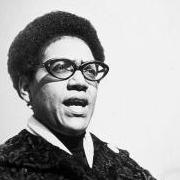-
Posts
411 -
Joined
-
Last visited
-
Days Won
11
Reputation Activity
-
 Glasperlenspieler got a reaction from Marcus_Aurelius in Which programs are best to apply to?
Glasperlenspieler got a reaction from Marcus_Aurelius in Which programs are best to apply to?
It seems like you have a good list of programs for people doing Lewis-style metaphysics. Given your stats, you will probably have more luck with MA programs. It's probably still worth applying to a couple PhD programs, but the ones you list are likely sufficient (NYU and Rutgers will be ridiculously difficult to get into but that's the case for everyone; USC and Syracuse won't be a cakewalk either but they should be slightly less competitive). I might think about adding a couple more funded MA programs. While I think you've done a good job of identifying those MA programs especially strong in your area of interest, I'm not sure fit is as important when it comes to MAs. Take a look at places like UW-Milwaukee or Georgia State that offer full funding. They may not have anyone who specifically works in your area, but Lewis is well enough know that someone can certainly advise a master's thesis and your main goal with an MA would be to garner a high enough GPA and good enough letters so that you can be competitive for PhD programs down the line.
-
 Glasperlenspieler got a reaction from PossumTheCat in Which programs are best to apply to?
Glasperlenspieler got a reaction from PossumTheCat in Which programs are best to apply to?
It seems like you have a good list of programs for people doing Lewis-style metaphysics. Given your stats, you will probably have more luck with MA programs. It's probably still worth applying to a couple PhD programs, but the ones you list are likely sufficient (NYU and Rutgers will be ridiculously difficult to get into but that's the case for everyone; USC and Syracuse won't be a cakewalk either but they should be slightly less competitive). I might think about adding a couple more funded MA programs. While I think you've done a good job of identifying those MA programs especially strong in your area of interest, I'm not sure fit is as important when it comes to MAs. Take a look at places like UW-Milwaukee or Georgia State that offer full funding. They may not have anyone who specifically works in your area, but Lewis is well enough know that someone can certainly advise a master's thesis and your main goal with an MA would be to garner a high enough GPA and good enough letters so that you can be competitive for PhD programs down the line.
-
 Glasperlenspieler got a reaction from Sigaba in Scholars who analyze history in terms of power relations like Foucault?
Glasperlenspieler got a reaction from Sigaba in Scholars who analyze history in terms of power relations like Foucault?
Not really.
Here are three topics of study that could conceivably fall under the description you gave:
1. The suppression of a particular heresy in monastic communities in Italy in the 14th Century
2. Philanthropic responses to poverty (and the surrounding discourse) in Victorian England
3. The American federal government's rhetoric and response to the AIDs epidemic in the 1980s
An account of any of these topics would almost certainly pertain to an account of the power structures that determine "what people perceive as truth" in a given society and at a given time, as the "obligations which been internalized in people" in those societies as well as how those obligations came to be. And any of these projects could plausibly benefit from a Foucauldian theoretical orientation.
If you want to get admitted to a graduate program in history, those are the sorts of projects you will need to propose. And, as will be clear, each of these projects will likely demand a radically different methodology, set of research skills, historiographical awareness and knowledge base. Furthermore, each project would require a very different doctoral advisor.
-
 Glasperlenspieler got a reaction from hector549 in Which programs are best to apply to?
Glasperlenspieler got a reaction from hector549 in Which programs are best to apply to?
It seems like you have a good list of programs for people doing Lewis-style metaphysics. Given your stats, you will probably have more luck with MA programs. It's probably still worth applying to a couple PhD programs, but the ones you list are likely sufficient (NYU and Rutgers will be ridiculously difficult to get into but that's the case for everyone; USC and Syracuse won't be a cakewalk either but they should be slightly less competitive). I might think about adding a couple more funded MA programs. While I think you've done a good job of identifying those MA programs especially strong in your area of interest, I'm not sure fit is as important when it comes to MAs. Take a look at places like UW-Milwaukee or Georgia State that offer full funding. They may not have anyone who specifically works in your area, but Lewis is well enough know that someone can certainly advise a master's thesis and your main goal with an MA would be to garner a high enough GPA and good enough letters so that you can be competitive for PhD programs down the line.
-
 Glasperlenspieler reacted to maxhgns in Which programs are best to apply to?
Glasperlenspieler reacted to maxhgns in Which programs are best to apply to?
You should spend time working on your writing sample and cover letter. The writing sample is most important, but the cover letter is often neglected and can make a big difference--what you want to do there is address your fit in the program, and why you're such a better bet than the other students. That means looking at opportunities in cognate disciplines, figuring out what kind of support there is for your other interests, looking at whether you can participate in related programs (such as certificate programs), etc.
Just to add to the excellent advice that's already been given: you need to know that there are virtually no jobs in metaphysics. Seriously, basically none, and there's no indication that the situation is going to improve over the next ten years. Pretty much the only people who do straight-up metaphysics who are being hired are people who attended tippity-top metaphysics programs, or with strong interests and credentials in mind (although the boom years for mind are behind us, too), metaethics (honestly, I think more and more metaphysicists are going into metaethics, where the prospects are better), and philosophy of science. Nobody can predict what the job market will look like ten years from now, but it's worth knowing what it's like now, and doing what you can to maximize your chances.
-
 Glasperlenspieler got a reaction from maxhgns in Which programs are best to apply to?
Glasperlenspieler got a reaction from maxhgns in Which programs are best to apply to?
It seems like you have a good list of programs for people doing Lewis-style metaphysics. Given your stats, you will probably have more luck with MA programs. It's probably still worth applying to a couple PhD programs, but the ones you list are likely sufficient (NYU and Rutgers will be ridiculously difficult to get into but that's the case for everyone; USC and Syracuse won't be a cakewalk either but they should be slightly less competitive). I might think about adding a couple more funded MA programs. While I think you've done a good job of identifying those MA programs especially strong in your area of interest, I'm not sure fit is as important when it comes to MAs. Take a look at places like UW-Milwaukee or Georgia State that offer full funding. They may not have anyone who specifically works in your area, but Lewis is well enough know that someone can certainly advise a master's thesis and your main goal with an MA would be to garner a high enough GPA and good enough letters so that you can be competitive for PhD programs down the line.
-
 Glasperlenspieler got a reaction from ClassicsCandidate in Fall 2020 applicants
Glasperlenspieler got a reaction from ClassicsCandidate in Fall 2020 applicants
Not a classicist, but wanted to mention that depending on the exact nature of your project, if you're primarily interested in reception, a comparativist-friendly German department might also be a sensible place to pursue this research (though I'm not sure Germanists are that much better off than classicists when it comes to the job market). I can think of several departments that might fit the bill.
-
 Glasperlenspieler got a reaction from S_C_789 in Identifying POIs in SOP
Glasperlenspieler got a reaction from S_C_789 in Identifying POIs in SOP
I want to throw out one alternative suggestion: I don't think it's strictly necessary to mention any names in your SOP. That's not to say you shouldn't due, I just wouldn't assume you need to (and I do know of people who have been successful without mentioning names).
I think there are some risks that are associated with naming names:
1) You might mention someone who is no longer there, is soon to be leaving, or is disengaged from the department despite technically being part of it.
2) You might misrepresent someone's work, which will probably count against you.
3) You might not mention someone who from the admissions committee's perspective (or that person's perspective) is an obvious fit. A petty professor might take this as a slight and judge your application more harshly accordingly.
4) You might mention two professors, but unbeknownst to you, those professors hate each other and refuse to serve on a committee together.
There are variations on these, but you get the idea. Furthermore, if you articulate your research interests well enough, the admissions committee (which knows their department better than you do) is more than capable to seeing how you do (or do not) fit into the department. In that case, space spent naming names, is space you could have spent better articulating your project.
Again, I don't take any of this to be evidence that you shouldn't name names, but I wouldn't do it just for the sake of doing so, and I wouldn't assume you stand no chance of admission if you don't. There are often compelling reasons to name names, but that doesn't mean it's always necessary.
-
 Glasperlenspieler got a reaction from Marcus_Aurelius in What are some advantages and disadvantages of a 3-4 year PhD vs a 5-7 year PhD?
Glasperlenspieler got a reaction from Marcus_Aurelius in What are some advantages and disadvantages of a 3-4 year PhD vs a 5-7 year PhD?
Do note that almost all (if not all) European-style PhD programs require an MA or the equivalent for admission. American PhD programs, on the other hand, more or less have an MA program built into the first 2-3 years of the PhD program. In other words, if you are considering grad school from the position of having a BA, the choice of going to an MA and then a European-style PhD program is only going to be marginally quicker (if at all) than going straight to an American PhD program.
Edit: I skipped over the part where the OP mentions that they already have an MA. My point still stands but is perhaps less relevant for the OP.
-
 Glasperlenspieler reacted to Duns Eith in What are some advantages and disadvantages of a 3-4 year PhD vs a 5-7 year PhD?
Glasperlenspieler reacted to Duns Eith in What are some advantages and disadvantages of a 3-4 year PhD vs a 5-7 year PhD?
P.S.
Regarding opportunity cost - what makes you think you have to decide to leave academia at the end of the PhD? You can quit in 3 years at either institution
-
 Glasperlenspieler got a reaction from Duns Eith in What are some advantages and disadvantages of a 3-4 year PhD vs a 5-7 year PhD?
Glasperlenspieler got a reaction from Duns Eith in What are some advantages and disadvantages of a 3-4 year PhD vs a 5-7 year PhD?
Do note that almost all (if not all) European-style PhD programs require an MA or the equivalent for admission. American PhD programs, on the other hand, more or less have an MA program built into the first 2-3 years of the PhD program. In other words, if you are considering grad school from the position of having a BA, the choice of going to an MA and then a European-style PhD program is only going to be marginally quicker (if at all) than going straight to an American PhD program.
Edit: I skipped over the part where the OP mentions that they already have an MA. My point still stands but is perhaps less relevant for the OP.
-
 Glasperlenspieler got a reaction from hector549 in What are some advantages and disadvantages of a 3-4 year PhD vs a 5-7 year PhD?
Glasperlenspieler got a reaction from hector549 in What are some advantages and disadvantages of a 3-4 year PhD vs a 5-7 year PhD?
Do note that almost all (if not all) European-style PhD programs require an MA or the equivalent for admission. American PhD programs, on the other hand, more or less have an MA program built into the first 2-3 years of the PhD program. In other words, if you are considering grad school from the position of having a BA, the choice of going to an MA and then a European-style PhD program is only going to be marginally quicker (if at all) than going straight to an American PhD program.
Edit: I skipped over the part where the OP mentions that they already have an MA. My point still stands but is perhaps less relevant for the OP.
-
 Glasperlenspieler reacted to Warelin in 2020 Applicants
Glasperlenspieler reacted to Warelin in 2020 Applicants
I'd like to add on to this. I was accepted at schools where I mentioned certain faculty by name. I was also accepted at schools where I did not mention any faculty by names. In one of the schools I was accepted to, I only mentioned one faculty. They're currently at a different school.
So I don't think there is a correct or wrong way of writing your SOP when it comes to the inclusion or exclusion of names.
-
 Glasperlenspieler reacted to Olórin in What are my odds?
Glasperlenspieler reacted to Olórin in What are my odds?
We can't give you what you want.
Anyone's odds could always be better.
People with better odds sometimes don't get in. People with worse odds sometimes do get in.
You're rolling the dice, and nothing about how you describe yourself suggests it will be a bad roll. It is, however, still a roll.
-
 Glasperlenspieler got a reaction from ccab4670 in Low GPA But Wanting to Apply for PhD Programs
Glasperlenspieler got a reaction from ccab4670 in Low GPA But Wanting to Apply for PhD Programs
Honestly, with those numbers your best bet is probably to apply for (funded) MA programs. Because there are so many strong applicants, you will likely have a very hard time getting admitted to a PhD program, even if all of your application materials are stellar. However, admissions committees are more apt to forgive a less than stellar undergraduate records if you have completed an MA with high marks and good letters of recommendation. It won't necessarily reset your numbers, but I do think it would give you a much stronger chance. It's increasingly common to earn an MA at another institution before moving on to the PhD and is a good way to develop the skills necessary for success.
You would also probably benefit from a GRE prep course, or at least a study book. To some degree high test scores can mitigate the impact of a low GPA (though not entirely). But if you have both a low GRE and a low GPA, your application is unlikely to get a close look.
Finally, it may be important to address your grades in your statement of purpose. If you can provide some explanation for why they are low, that might cause an admissions committee to be more generous in reading your application. You need to be careful here though. Explaining your grades doesn't mean giving excuses. You still need to demonstrate that you take responsibility for them. A "woe is me" narrative is unlikely to be read sympathetically be an admissions committee.
-
 Glasperlenspieler reacted to dr. t in Writing an MA Thesis - Should I?
Glasperlenspieler reacted to dr. t in Writing an MA Thesis - Should I?
There's not much purpose to it these days, unless you're trying to figure out what you want to do with history. A vestigial appendage from when you didn't necessarily need the PhD to go into academia.
-
 Glasperlenspieler got a reaction from merry night wanderer in Low GPA But Wanting to Apply for PhD Programs
Glasperlenspieler got a reaction from merry night wanderer in Low GPA But Wanting to Apply for PhD Programs
Honestly, with those numbers your best bet is probably to apply for (funded) MA programs. Because there are so many strong applicants, you will likely have a very hard time getting admitted to a PhD program, even if all of your application materials are stellar. However, admissions committees are more apt to forgive a less than stellar undergraduate records if you have completed an MA with high marks and good letters of recommendation. It won't necessarily reset your numbers, but I do think it would give you a much stronger chance. It's increasingly common to earn an MA at another institution before moving on to the PhD and is a good way to develop the skills necessary for success.
You would also probably benefit from a GRE prep course, or at least a study book. To some degree high test scores can mitigate the impact of a low GPA (though not entirely). But if you have both a low GRE and a low GPA, your application is unlikely to get a close look.
Finally, it may be important to address your grades in your statement of purpose. If you can provide some explanation for why they are low, that might cause an admissions committee to be more generous in reading your application. You need to be careful here though. Explaining your grades doesn't mean giving excuses. You still need to demonstrate that you take responsibility for them. A "woe is me" narrative is unlikely to be read sympathetically be an admissions committee.
-
 Glasperlenspieler got a reaction from Bopie5 in Low GPA But Wanting to Apply for PhD Programs
Glasperlenspieler got a reaction from Bopie5 in Low GPA But Wanting to Apply for PhD Programs
Honestly, with those numbers your best bet is probably to apply for (funded) MA programs. Because there are so many strong applicants, you will likely have a very hard time getting admitted to a PhD program, even if all of your application materials are stellar. However, admissions committees are more apt to forgive a less than stellar undergraduate records if you have completed an MA with high marks and good letters of recommendation. It won't necessarily reset your numbers, but I do think it would give you a much stronger chance. It's increasingly common to earn an MA at another institution before moving on to the PhD and is a good way to develop the skills necessary for success.
You would also probably benefit from a GRE prep course, or at least a study book. To some degree high test scores can mitigate the impact of a low GPA (though not entirely). But if you have both a low GRE and a low GPA, your application is unlikely to get a close look.
Finally, it may be important to address your grades in your statement of purpose. If you can provide some explanation for why they are low, that might cause an admissions committee to be more generous in reading your application. You need to be careful here though. Explaining your grades doesn't mean giving excuses. You still need to demonstrate that you take responsibility for them. A "woe is me" narrative is unlikely to be read sympathetically be an admissions committee.
-
 Glasperlenspieler reacted to psstein in My interests have multiplied -- help?
Glasperlenspieler reacted to psstein in My interests have multiplied -- help?
To add onto this, just reading an article or two in any given area may completely destroy whatever interest you have. I ever so briefly had an interest in history of chemistry. Two articles cured me of that interest.
-
 Glasperlenspieler got a reaction from karamazov in 2020 Applicants
Glasperlenspieler got a reaction from karamazov in 2020 Applicants
Certainly! Academia is a land of nepotism (and is pretty incestuous too boot, in more ways than one). If your letter writer is friends with someone on they admissions committee, they might be more disposed to give credence to the what is said in the letter. This works both ways though too. If someone on the admissions committee has a personal or professional beef with your letter writer, they might be less kindly disposed toward your application (whether they intend to or not). Furthermore, I've heard of big name professors who are so exaggeratedly enthusiastic in their letter of recommendation that they've earned a reputation for this and admissions committees do not take their letters as seriously anymore.
tldr: It can help but could also hurt in some cases. However, you probably don't have a good enough grasp of the social dynamics at play to predict these things. So don't worry about it and focus on what you can control.
-
 Glasperlenspieler reacted to Sigaba in 2020 application thread
Glasperlenspieler reacted to Sigaba in 2020 application thread
The objective of this thread is to serve as a catch all for aspiring historians seeking graduate degrees.
IME/IMO, these annual threads work better when interested parties pose their questions in a single catch all thread rather than starting individual threads across multiple fora for each question, concern, complaint, and gripe. YMMV.
For this year's thread, I am going to recommend two changes of pace. First, when you write your introductory post, focus on your areas of interest/fields of study, and language skills rather than your numbers.If you've written a senior thesis and/or honors thesis, share your findings either generally or specifically. Articulate what you want to do as a professional academic historian beyond where you want to work. That is, spend time writing about what kind of historian you want to be. (A way to accomplish this task is to write about the work or historians who have greatly influenced you.) If you've already identified historiographical trajectories you want to alter slightly, redirect, or shatter, let us know.
The second recommendation is for those members of the BB who attend top schools and typically lurk throughout the season until after receiving notification of getting into all of one's programs of choice. Please consider the value of sharing the information you're receiving in person during office hours from professors and graduate students at your current institution. Do not violate any confidences. However, if you get a nugget on how to tackle a SOP or writing sample, you can do others a solid by passing that information along. (And you can be highly confident that sharing such tips isn't going to diminish your chances of going seven for seven.)
-
 Glasperlenspieler got a reaction from LineOfFlight in (Comparative) Literature programs
Glasperlenspieler got a reaction from LineOfFlight in (Comparative) Literature programs
Something like this used to be the case in the US and to some extent still is, but I'd say it's more like a spectrum and one with lots of variation. Comp Lit departments are changing too (when they're not just disappearing). In many cases, they're increasingly home to scholars of non-Western literatures that may not have a place on campus otherwise. English departments are also becoming more theoretical and interdisciplinary in many cases and less tied to the traditional canon (though there are still old-school programs). One way to get a feel for this is course requirements. A stricter set of distribution requirements will often indicate a more traditional program.
As a matter of good scholarly practice, it's usually frowned to engage with your primary material only in translation, which holds true throughout the humanities (though you may still provide translations in your scholarship depending on your audience. An exception may be made for theory but even then its better to have a basic reading knowledge of the original to understand terminological issues). Most English departments, however, do have a foreign language requirement and would welcome your ability to work in multiple languages. However, if the majority of your primary texts are non-Anglophone, you might not fit will in an English department. But if you want to work primarily with Anglophone media and occasionally incorporate non-Anglophone texts by way of comparison, that could certainly be done in the right English department. None of this is to say you should go to an English department, but I wouldn't rule out that possibility to quickly. And it's also good to be aware of the potential pitfalls related to comparative literature programs.
-
 Glasperlenspieler got a reaction from LineOfFlight in (Comparative) Literature programs
Glasperlenspieler got a reaction from LineOfFlight in (Comparative) Literature programs
Two questions that should help you get better responses:
1) What's your end goal? Would like to obtain an academic position in the US or would you rather go back to your home country following your PhD? If it's the former you should know that there are very few jobs in Comparative Literature departments. This isn't to say you should't enter such a program, but you should be aware that if you do, your best chances for a job are apt to be in national literature departments. Which leads to my next question....
2) What languages do you work in and what in what languages are the works of literature/film/media you would like to research? If you're primarily interested in anglophone literature/media, it may make sense to look at English departments. Many (though not all) English departments have strengths in and advocate interdisciplinary methods and engaging with theoretical perspectives like ecocriticism. Same goes for German, French, etc. departments. So just because you do interdisciplinary/theoretical work, doesn't mean you couldn't have a place in a more traditional department.
-
 Glasperlenspieler reacted to underthewaves in Highly Recommended Euro History Books
Glasperlenspieler reacted to underthewaves in Highly Recommended Euro History Books
I don't have any specific book recommendations, more of an overall recommendation -- find something published relatively recently that you're interested, read it, and then comb through the bibliography to see what works and authors that author is engaging with. I find tons of great recommendations that way.
-
 Glasperlenspieler got a reaction from Revenir in Is stipend taxed?
Glasperlenspieler got a reaction from Revenir in Is stipend taxed?
Generally speaking: stipends are income and are taxed accordingly.
Despite a close call involving shithead Republicans in congress, tuition waivers and scholarships used to pay for tuition are still tax free.





.thumb.jpg.e2b2f167f1fdbc280b49c623b045948a.jpg)




